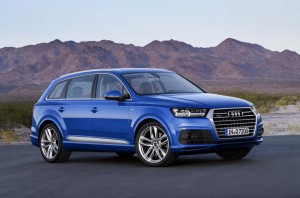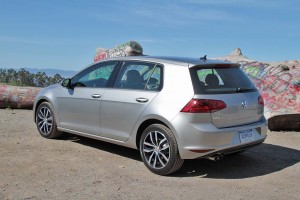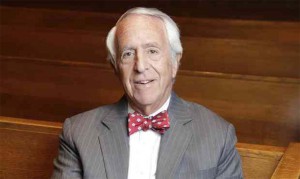Volkswagen believes it can fix the problem with about 85,000 vehicles using a faulty 3.0-liter diesel engine, the maker told a federal judge in San Francisco.
The revelation came shortly after VW and several federal agencies reached a $14.7 settlement on charges the maker had rigged a smaller diesel engine to pass U.S. emissions tests even though it grossly exceeded emissions rules in real world operations. That deal includes about $10 billion to buy back the 475,000 vehicles sold between the 2009 and 2015 model-years using a 2.0-liter turbodiesel.
If it can convince the Environmental Protection Agency and the California Air Resources Board, or CARB, that the proposed fix works, VW would be able to avoid a second costly buyback.
“The company believes that we can fix the 3.0 liter to the standards to which those cars were originally certified,” Volkswagen attorney Robert Giuffra said during a hearing in the courtroom of U.S. District Judge Charles Breyer on Thursday.
Last September, the EPA charged VW with using a so-called “defeat device” capable of detecting when one of its 2.0-liter diesels was undergoing emissions testing. In that instance, the software controlling the emissions system revised engine operations. In real world use, according to EPA chief Gina McCarthy, the diesels produced up to 40 times the legal level of particulates and smog-causing oxides of nitrogen.
VW acknowledged the subterfuge and subsequently conceded it had rigged its 3.0-liter diesels, as well. The larger engine has been used in some of the more expensive VW models, as well as vehicles sold in the U.S. by Audi and Porsche during the 2009 to 2016 model-years. These include the Volkswagen Touareg, Porsche Cayenne Audi A6 and A7 Quattro, Audi A8 and Audi Q5 and Q7.
(US officials announce the diesel deal with VW. Click Here for more.)
Earlier this year, VW announced it had come up with a fix for the 2.0-liter diesel – at least for overseas markets. It is slowly ramping up the repair process, but it has failed to come up with an acceptable solution for the U.S., requiring it to accept the buyback program as the central part of the settlement Judge Breyer was given this week for review.
The cost of that program makes up the largest chunk of the $18.2 billion write-down VW took against its 2015 earnings. The rest of the settlement includes $2.7 billion for environmental remediation and another $2 billion to help boost usage of zero-emission vehicles.
Considering the fact that the 3.0-liter diesel was used in some of the Volkswagen Group’s more expensive models, a buyback would likely cost substantially more, at least on a per-vehicle basis – ultimately adding billions more to the maker’s diesel scandal price tag.
The challenge is to make the larger engine compliant with America’s diesel emissions standards, among the world’s toughest. The automaker will also have to prove a fix is durable enough to remain compliant during the time period prescribed by law.
(German authorities investigating role of former VW CEO Winterkorn. Click Here for the latest.)
During the San Francisco hearing, Justice Department lawyer Joshua Van Eaton said that testing was underway, but made it clear VW will have to prove the fix will work. It “takes time to be fully confident that whatever is being proposed is a technically sound solution,” he told the court.
No timetable was set, though Judge Breyer expects to address the proposed 2.0-liter diesel settlement on July 26.
(When will VW start issuing checks to diesel owners? Click Here for this Q&A.)



